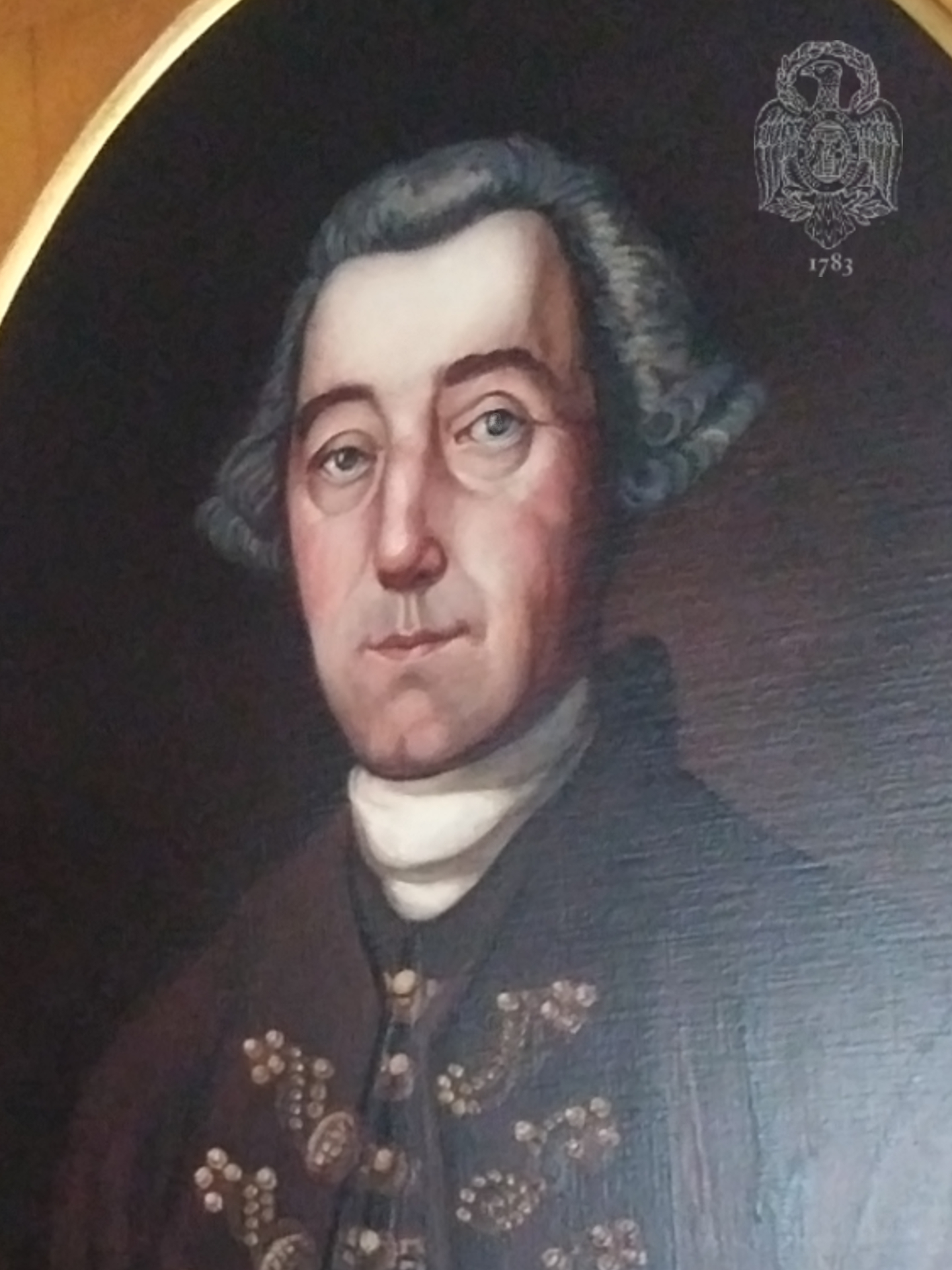Surgeon Thomas Bond, Jr.
Thomas Bond, Jr., came of a well-connected and socially prominent family whose origins lay in Maryland. He was born in 1743 to Dr. Thomas Bond, Sr. (1713-1784) and his wife Sarah Roberts, whom he married in 1735. He entered the Academy of Philadelphia in 1751, moved on the College in 1757, and graduated in 1760. That he was socially inclined is indicated by his election to the “Fishing Company” when he was twenty years old; in the same year he married his first wife, Anne Morgan.
Although he studied medicine with his father and perhaps his uncle Phineas Bond, his operating a stocking and thread business in Philadelphia in 1766 indicates a lack of interest in the family calling. But it may be that he took seriously his signing the Philadelphia Non-Importation Agreement in 1765, and hoped to do his part in substituting American manufactures for British imports. The business continued for several years but was not a success, and in 1784 by his will, his father Dr. Thomas left £1,000 for the payment of the debt of his son’s partnership.
Bond had returned to medicine even before the final failure of his textile business and seems to have practiced with his father; he had been elected to membership in the American Philosophical Society, and his brother Richard was also preparing for a medical career. On 6 April 1774 Bond’s wife died, leaving behind two small daughters. Soon to be caught up in the Revolutionary turmoil, Bond nevertheless appears to have met life with equanimity, and John Adams in July 1775 wrote to his wife, Abigail,
About five O Clock this Morning, I went with young Dr. Bond at his Invitation and in his Carriage, to his Fathers Seat in the Country. His Mother, with three of her Grand Children, little Girls, resides here….The House is only one small room, with one Chamber over it. But the Farm is large, the Gardens very spacious, the orchards noble, and the Fruit Trees, very numerous and of great Variety. Noble Rowes of poplar Trees, in Europe they are called Tulip Trees, a more noble and beautiful Tree, than our Lime Trees. The House stands upon the highest Land, that is any where to be found in the Neighbourhood of this City. The Prospect round it is rural, very spacious and very agreeable. The Air is very pure.
…This young Dr. Bond is above thirty, perhaps near forty. He has lost his Wife, and has two pretty little Girls-…He is…fat and jolly, a Lover of Pleasure, educated at the colledge here, has been in Trade, and sunk his father five or six thousand Pounds sterling, and then returned to the Study and practice of Physic. Wine and Women he uses very freely…
In August 1776, Bond joined the hospital corps as Surgeon, and stayed with this service, becoming Purveyor, until the end of the war. He took his responsibilities seriously and in 1777 was appointed Assistant Director of the General Hospital. Appeals from him for goods and services are met with in Philadelphia newspapers. The following is typical:
Dr. Thomas Bond, junior, purveyor of the general hospital, presents his compliments to the patriotic and humane ladies of this and the neighboring states, and informs them the hospitals are now much in want of lint and bandage; and have lately heard of their great bounty and friendly attention to the American soldiery, in a most generous subscription for them, requests a further continuance of their favours, for the use of the hospitals, to be delivered at his office in Second street, and at the hospitals in various states. The doctor flatters himself, from the benevolent and active spirit shown on the late occasion, and the necessity and humanity of this petition, that he shall shortly be enabled to render the unfortunate wounded and lame of the American army comfortable and happy, and be amply provided for the succeeding campaign.
Bond’s correspondence bears ample evidence of his compassionate feelings for the men brought for his care from the battlefield, and for those suffering from the rampant maladies of the camps.
Hardly had the war ended and Thomas entered a medical partnership with his father when the latter died in 1784. Thomas then formed a partnership, apparently of short duration, with Goodwin Wilson , another army doctor. The same year he was elected one of the secretaries to the American Philosophical Society and became a member of the Philadelphia Society for Promoting Agriculture. Although nominated as a Trustee of the University of the State of Pennsylvania, he was not elected, and nor did he ever become a member of the College of Physicians of Philadelphia. It seems inescapable to conclude that he was not considered to be of the stature of his father who had been members of both. Perhaps as solace, Bond took as a second wife a widow, Mrs. Jane Ferris in September 1786. In 1790 Dr. Bond was living in the Northern Liberties with one other male over sixteen, one under sixteen, three females, and one other free person. He appears in the Biddle Philadelphia City Director for 1791, but not afterwards.
Bond was a speculator in western lands and may have acquired rights of one sort or another to as many as 60,000 acres in Randolph and Harrison counties in [now, West] Virginia. There, while on a tour of his holdings, he died on 17 July 1793. He was buried in the Morgantown, [West] Virginia, Presbyterian Churchyard. In 1901, the church and graveyard were destroyed, and Dr. Bond’s remains were brought to Philadelphia and reinterred in Christ Church’s burying ground.

